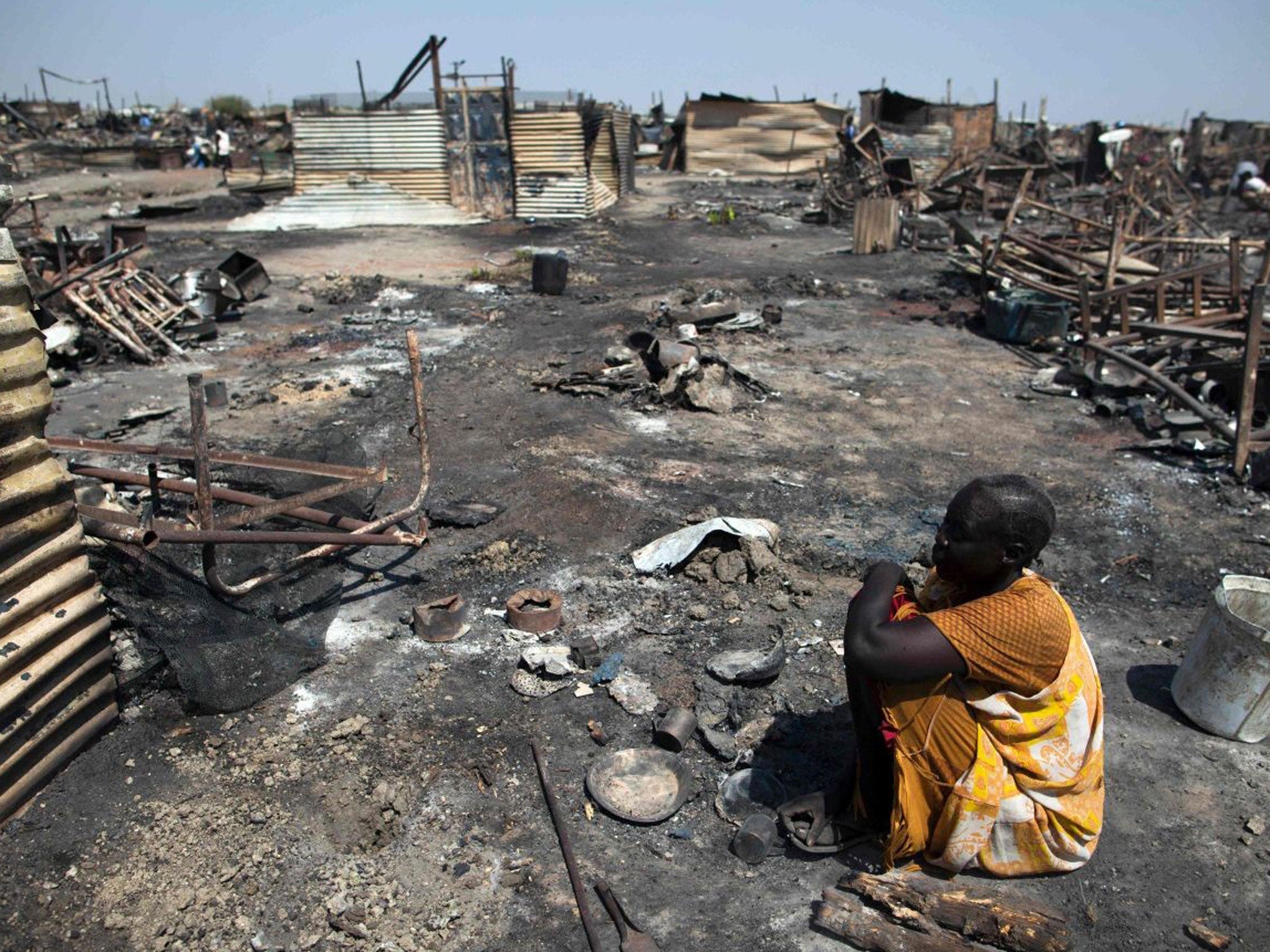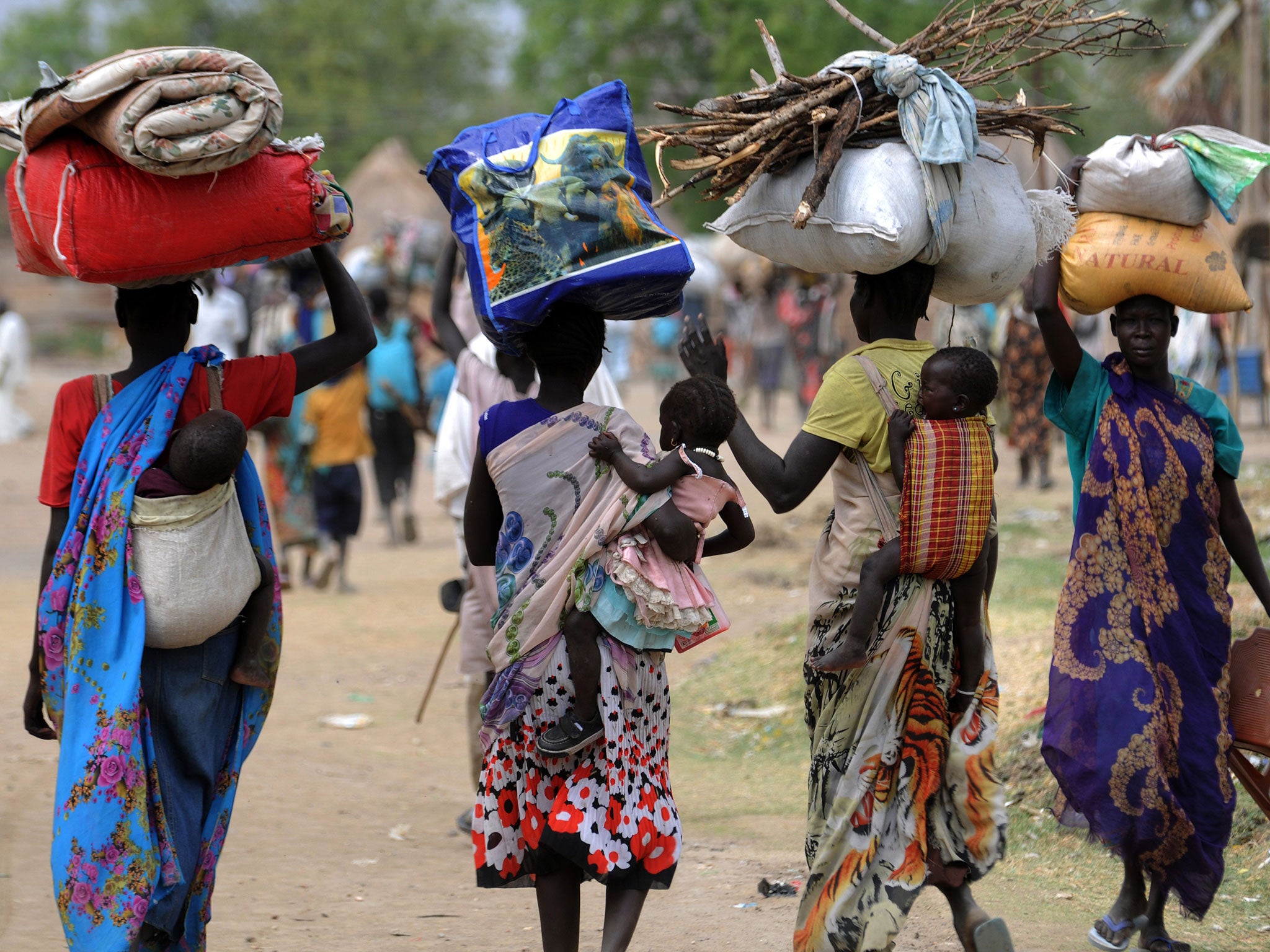Pro-government militias 'told to rape women in lieu of pay' as war crimes continue in South Sudan
A UN report has revealed a catalogue of human rights violates and war crimes being committed by all sides

Your support helps us to tell the story
From reproductive rights to climate change to Big Tech, The Independent is on the ground when the story is developing. Whether it's investigating the financials of Elon Musk's pro-Trump PAC or producing our latest documentary, 'The A Word', which shines a light on the American women fighting for reproductive rights, we know how important it is to parse out the facts from the messaging.
At such a critical moment in US history, we need reporters on the ground. Your donation allows us to keep sending journalists to speak to both sides of the story.
The Independent is trusted by Americans across the entire political spectrum. And unlike many other quality news outlets, we choose not to lock Americans out of our reporting and analysis with paywalls. We believe quality journalism should be available to everyone, paid for by those who can afford it.
Your support makes all the difference.Pro-government militias in South Sudan are being offered women to rape in lieu of wages as sexual violence is used as “an instrument of terror”, a UN report has found.
More than 1,300 rapes were recorded in just one of the country’s 10 states in a five-month period last year and all sides in its bloody civil war are accused of responsibility.
“Credible sources indicate groups allied to the government are being allowed to rape women in lieu of wages but opposition groups and criminal gangs have also been preying on women and girls,” the UN’s human rights office said.
Its report contains graphic accounts of civilians suspected of supporting the opposition, including children and the disabled, being killed by being burned alive, suffocated in containers, shot, hanged from trees or cut to pieces.
One woman described how she was stripped naked and raped by five soldiers in front of her children by the side of a road, then raped by more men in the bushes only to return and find her children missing.
Another victim was tied to a tree after her husband was killed and had to watch her 15-year-old daughter being raped by 10 soldiers.
Others said they were attacked after leaving the protection of UN camps to search for food, while some were abducted as sex slaves or “wives” for soldiers living in government barracks.
Investigators said the assaults have been characterised by “extreme brutality”, with even a sign of resistance or struggle, or looking a rapist directly in the eye, resulting in women being killed.
“If you looked young or good looking, about ten men would rape the woman; the older women were raped by about seven to nine men,” one witness said.
The prevalence of rape “suggests its use in the conflict has become an acceptable practice by SPLA (government) soldiers and affiliated armed militias,” the report says.
“Women and girls were considered a commodity and were taken along with civilian property as the soldiers moved through the villages.”
Some were forced to marry their attackers, while those who fell pregnant often became victims of stigmatisation and domestic violence in their communities.

And the horror has not been confined to women – the UN has received reports of 702 children affected by incidents of sexual violence since the start of the conflict in 2013, with some victims of gang rape as young as nine years old.
“The scale and types of sexual violence - primarily by government SPLA forces and affiliated militia – are described in searing, devastating detail, as is the almost casual, yet calculated, attitude of those slaughtering civilians and destroying property and livelihoods,” said the UN High Commissioner for Human Rights, Zeid Ra’ad Al Hussein.
“However, the quantity of rapes and gang-rapes described in the report must only be a snapshot of the real total.
“This is one of the most horrendous human rights situations in the world, with massive use of rape as an instrument of terror and weapon of war - yet it has been more or less off the international radar.”
Conflict between rebels and the regime has continued unabated in the wake of the world’s newest country’s declaration of independence in 2011.

The government’s Sudan People's Liberation Army (SPLA), backed by mostly Dinka loyalist militias, is battling the mainly Nuer opposition group the SPLM-IO and its allies.
Although all sides have committed atrocities that may amount to crimes against humanity, government forces bore the greatest responsibility in 2015 as opposition forces were weakened, the report said.
It lists attacks against civilians, rape and other crimes of sexual violence, arbitrary arrest and detention, abduction and deprivation of liberty, disappearances and attacks on UN bases by all parties.
Government forces are accused of implementing a “scorched earth policy” and deliberately targeting civilians for killing, rape and pillage in strategic areas, destroying more than 10,000 homes while burning crops and looting food stocks.

Some of the most serious abuses took place in 2014 in Bentiu and Rubkona in Unity State, when pro-government militias massacred hundreds of civilians as they attempted to shelter from the fighting in churches, mosques and hospitals.
Both regime and opposition forces have used child soldiers, whose numbers were put at 617 but are believed to be far greater. Meanwhile, journalists and activists attempting to expose the atrocities have been murdered and detained.
The report called on the Transitional Government of National Unity, which was promised in an August peace agreement but has not materialised, to take effective action to stop the catalogue of abuses.
South Sudan's war began in December 2013, throwing the world's newest country into chaos, killing tens of thousands, displacing more than 2 million, and plunging at least 40,000 into famine.
Join our commenting forum
Join thought-provoking conversations, follow other Independent readers and see their replies
Comments